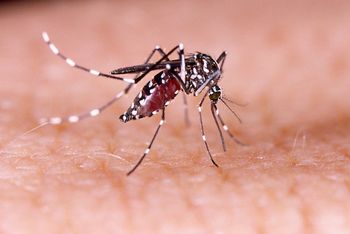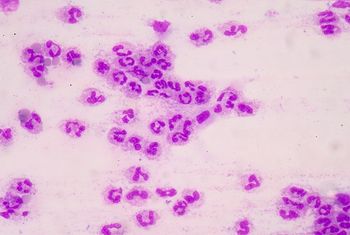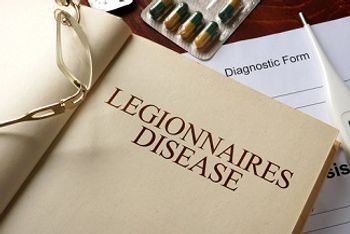
A new announcement marks the elimination of mother-to-child HIV transmission in 6 Caribbean territories and states

A new announcement marks the elimination of mother-to-child HIV transmission in 6 Caribbean territories and states

The Society for Healthcare Epidemiology of America (SHEA), with support from the Centers for Disease Control and Prevention (CDC), released new expert guidance to help hospitals prepare for and contain infectious disease outbreaks.

This approach could significantly cut down on the cost and time needed to develop new antibiotics, which is critical considering the current antibiotic landscape.

Stay up-to-date on the latest infectious disease news by checking out our top 5 articles of the week.

The National Institutes of Health (NIH) have announced plans for a new trial testing the effectiveness of the injectable pre-exposure prophylaxis (PrEP) drug, cabotegravir, in sexually-active women.

England has been experiencing its biggest scarlet fever epidemic since 1967, but the cause of the epidemic remains unknown.

Although much has changed since the first World AIDS Day in 1988, the effects of the disease on public health remain significant, even as more individuals are “living” with the virus and fewer are dying from it.

Researchers on a new study have added more unwanted effects to the list of side effects from these life-saving drugs, further supporting the call for appropriate antibiotic use.

Individuals with cancer and HIV used to be excluded from clinical trials due to safety concerns, but new positive results open up treatment avenues for this population.

The FDA has approved Merck’s ISENTRESS to be used in combination with other antiretroviral agents to treat HIV-1 in certain newborns.

How can infectious disease physicians and psychiatrists overcome the current communication and knowledge gap to provide the best care possible for their patients?

A recent study finds that younger individuals are partaking in a wider range of sexual practices than they did 20 years ago. What does that mean for their health and well-being?

A blood oxygen level test in addition to 3 other noninvasive tests may be key to helping general practitioners diagnose pneumonia and avoiding unnecessary antibiotic prescriptions.

A new discovery could lead to a more effective live attenuated influenza vaccine offering extra protection to young children and the elderly.

A total of 50 employees were fired after refusing to get the vaccine.

Hepatitis A outbreaks have been ravaging 5 US states, leaving health officials scrambling.

Many individuals live with HIV for years before they are aware of their status. HIV testing is crucial if we hope to bring a close to the ongoing epidemic.

The FDA has cleared the molecular test which is able to detect presence of the toxin within 70 minutes.

Chembio Diagnostics, Inc.’s DPP Zika System, was recently awarded a conditional Long-Term Arrangement (LTA) for purchasing from the United Nations Children's Fund (UNICEF), once the company satisfies certain conditions.

A new study finds that many patients who are hospitalized for candiduria are not treated in compliance with IDSA guidelines.

Researchers have found that the 4-component vaccine MenB-4C (Bexsero) is effective against up to 91% of strains of the bacteria Neisseria meningitidis, which causes meningococcal disease.

A group of students from Johns Hopkins win first place at the fifth annual Pfizer Case Competition by providing solution to a problem regarding pneumonia vaccine compliance.

Researchers in South Africa have developed a symptom score card to help diagnose tuberculosis infections in individuals with HIV.

A recent study finds that prolonged infusion of antipseudomonal β-lactams in patients with sepsis was associated with significantly less mortality when compared with short-term infusion.

In case you missed them, we've compiled the top five infectious disease articles from this past week.

The results of a new study show that patients who are co-infected with the hepatitis C virus (HCV) and HIV can experience cure rates similar to individuals infected with HCV alone when both groups receive direct-acting antiviral drugs.

Check out the third portion of our exclusive interview with Maureen Spencer, Accelerate Diagnostics, as we discuss how reducing antibiotics could be key to preventing C. difficile infections.

New research finds that ineffective empiric treatment can lead to deadly consequences in late-onset sepsis patients.

Pharmacists can play an important role in counseling patients to help prevent outbreaks.

Maureen Spencer, Accelerate Diagnostics, sat down with Contagion® to discuss the challenges of disinfecting hospital rooms to prevent C. difficile.